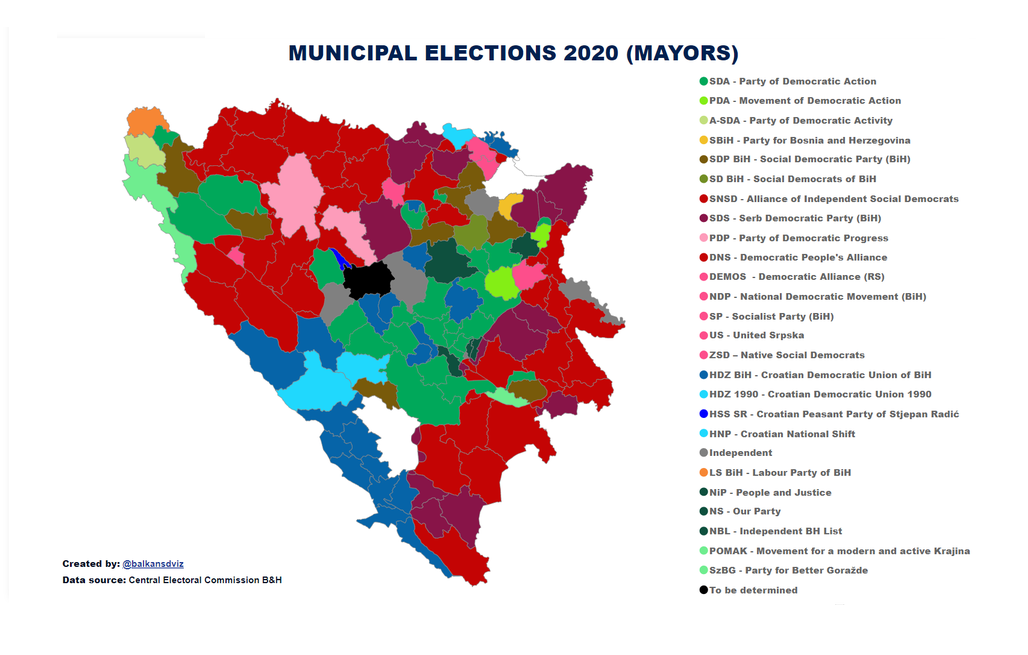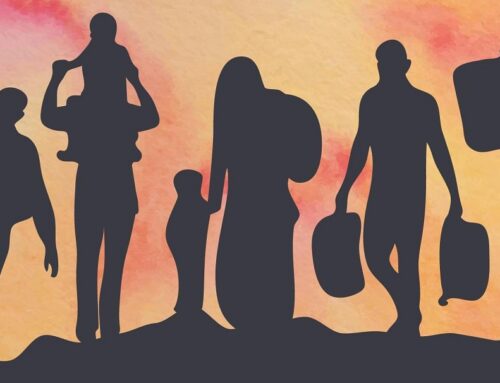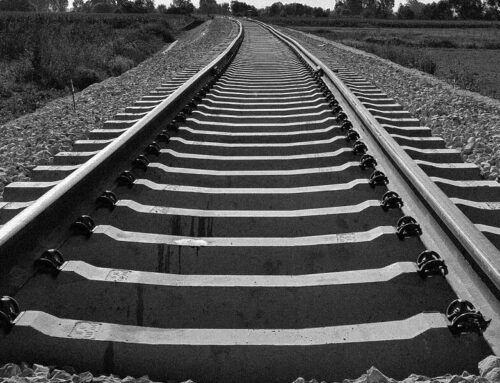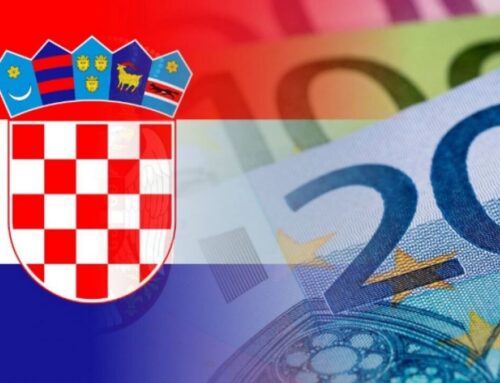Local elections in Bosnia and Herzegovina were held on 15th of November, where 3.2 million people were eligible to choose the leaders of their municipalities. Around 51% of the entire constituent body exercised their right to vote which demonstrated a 4% drop from previous elections from 2016. Despite the low turnout, it is worth to mention that this year’s vote was significant for several reasons; two of them being that national parties have lost their support in two largest cities and the town of Srebrenica has witnessed scandalous vote rigging. Moreover, since voting took place in the middle of COVID-19 pandemic, these elections also revealed the limitations of Bosnia and Herzegovina’s Election Law and electoral system in general.
Fall of national parties in Banja Luka and Sarajevo
The Serb party SNSD (Alliance of Independent Social Democrats) and the Bosniak party SDA (Party of Democratic Action) have lost their strongholds in Banja Luka and Sarajevo. Both SNSD and SDA lost their mayor positions to the opposition forces, Party of Democratic Progress (PDP) and Četvorka coalition, respectively.
Draško Stanivuković (PDP), newly elected mayor of Banja Luka, is already a familiar face on Bosnian political scene despite being the youngest elect. Stanivuković has showed his dissatisfaction with the former government by attending several protests organised in this city. He also promised to combat corruption and ensure transparency [1]. Based on his political activism in the past, citizens of Banja Luka are optimistically waiting for an improvement of city’s public affairs. However, the attention has been drawn to the fact that Stanivuković does not significantly depart from Dodik’s ideological stances. Although he supports multiculturalism and hopes for interethnic cooperation, Stanivuković also denies genocide in Srebrenica and continues to dispute the authority of International Criminal Court arguing that Hague’s decisions are highly politicised [2]. Shortly after the election, Stanivuković was criticised by left-leaning political actors for being against organisation of Pride Parade in Banja Luka, arguing that ”[it] is not in the spirit of the people to which I belong” [3].
Opposition alliance Četvorka – constituting of People and Justice (NiP), Social-democratic Party (SDP), Independent Bosnian-Herzegovinian List (NBL), and Our Party (NS) – declared major victory in Sarajevo. This alliance has won three out of four Sarajevo municipalities and has proclaimed Bogić Bogičević to be the candidate for the city mayor, a politician who has previously served as a Bosnian member of Yugoslav presidency until its dissolution. Bogičević, an ethnic Serb, is most famously known for defying Milošević regime in 1991 [4]. He is currently a member of SDP and will be succeeding Abdulah Skaka (SDA).
Srebrenica: Painful spot 25 years later
For the past four years, Srebrenica has been governed by Mladen Grujičić who is a member of Dodik’s SNSD. He was elected in 2016, defeating his opponent Ćamil Duraković and becoming first ethnically Serb mayor of Srebrenica in 17 years. According to the preliminary results, he was supposed to retain his position as a mayor in the next period. However, the outcome of the election is still unclear.
During the count, Grujičić had clear advantage over his Bosniak opponent Alija Tabaković. Tabaković, although a member of SDA, was supported by six ideologically diverse political parties including social-liberal Our Party (NS) who joined the pro-Bosnian bloc with an aim of countering Grujičić [5]. The pro-Bosnian bloc heavily relied on votes casted in absence and, as the race was becoming tighter, both sides could be observed celebrating victory the night of the elections [6].
SDP was the only party to refuse joining the bloc and has undergone severe criticism for it. They have asserted that the bloc is not pro-Bosnian, but pro-Bosniak and declined the cooperation. Bego Bektić, president of Srebrenica’s SDP branch, was suspected to be buying votes prior to the elections. He refused to comment which party he has been working for which led some media institutions to conclude he is supporting Grujičić [7]. Moreover, pro-Bosnian bloc has called for State Investigation and Protection Agency to investigate large number of citizens from Serbia who casted their votes without possessing any identification documents [8].
On 1st of December, it was revealed that SDP has committed electoral fraud. Bektić and two of his colleagues, all ethnically Bosniak, were arrested for unauthorized use of personal data and document forgery [9]. It has been suggested that Grujičić illegally won the elections and the Central Election Commission (CIK) will be doing a recount as the results remain unclear.
COVID-19 challenges
Current pandemic required the voting system to undergo some notable modifications in order to protect voting rights of all citizens. CIK has ensured the formation of mobile voting teams (COVID teams) which would, per citizen’s request, collect the votes from COVID-infected patients and those in isolation. Reports state that 1 600 citizens in self-isolation have applied for voting via mobile team [10], however some estimate that around 3 500 citizens were unable to cast their vote because the mobile team failed to visit them [11].
COVID-19 posed yet another challenge which was evident in Travnik municipality. SDA candidate Mirsad Peco has passed away due to complications associated with coronavirus during the election day. The final result in this municipality remains unclear since deceased Peco has decisively won the election with 45,6% of the votes. SDA has demanded from CIK to repeat the elections, while Croatian Democratic Union (HDZ) is insisting for their candidate Goran Pejaković to be declared a winner with 29,5% votes [12]. This unfortunate situation revealed the shortcomings of the BiH’s electoral framework and lack of ability to adequately address the problem.
Despite the elections being held a month ago, several municipalities are still doing a recount. Subtle fall of ethnic oriented parties, betrayal of Srebrenica, and inadequacy of the electoral legal framework are just some of the elements that marked the 2020 municipal elections in Bosnia and Herzegovina. Aside from complex bureaucracy and problematic electoral system, COVID-19 pandemic further complicated the voting process. In some municipalities, such as Travnik and Srebrenica, the final outcome is yet to be known. On a more positive side, these elections will allow Mostar to choose their government for the first time in 12 years. Mostar elections are supposed to be held on 20th of December, following the agreement between SDA and HDZ regarding the new statute of the city.
References:
[1] https://www.nezavisne.com/novosti/banjaluka/Sta-je-obecao-Drasko-Stanivukovic-Svoje-planove-cemo-sprovesti-u-djelo/632364
[2] https://radiosarajevo.ba/vijesti/bosna-i-hercegovina/sramotni-stanivukovic-u-srebrenici-nije-bilo-genocida-presude-karadzicu-i-mladicu-ne-priznajem/397702
[3] http://www.sarajevotimes.com/stanivukovic-there-will-be-no-pride-parade-in-banja-luka-during-my-term/
[4] http://balkans.aljazeera.net/vijesti/bogic-bogicevic-covjek-koji-je-milosevicevoj-politici-rekao-historijsko-ne
[5] https://www.faktor.ba/vijest/i-nasa-stranka-podrzala-aliju-tabakovica-samo-sdp-i-niksic-nece-u-probosanski-front-u-srebrenici/86472
[6] https://radiosarajevo.ba/vijesti/bosna-i-hercegovina/u-srebrenici-veceras-slave-i-srbi-i-bosnjaci/396658
[7] https://www.faktor.ba/vijest/jedini-nisu-u-probosanskom-bloku-za-koga-sdp-ov-bego-bektic-prikuplja-glasove-u-srebrenici/93671
[8] http://rs.n1info.com/Region/a672781/Moja-adresa-Srebrenica-Glasali-bez-vazecih-dokumenata-dolazili-iz-Srbije.html
[9] https://avaz.ba/vijesti/bih/613048/uhapsen-predsjednik-sdp-a-u-srebrenici
[10] https://www.dw.com/hr/lokalni-izbori-u-bih-strah-od-malverzacija/a-55600077
[11] https://www.klix.ba/vijesti/bih/mobilni-timovi-nisu-obisli-sve-birace-iz-sarajevske-opcineporucili-glasati-se-moglo-do-19-sati/201115119
[12] https://www.slobodnaevropa.org/a/travni%C4%8Dani-dali-glasove-preminulom-kandidatu-presedan-u-bih/30958180.html




